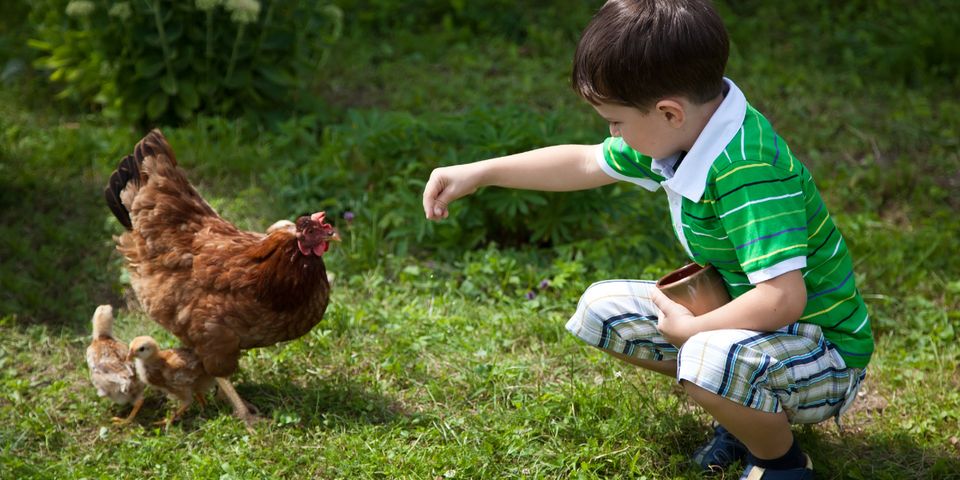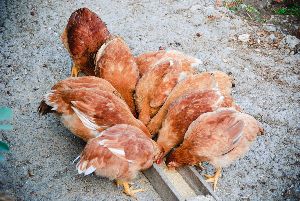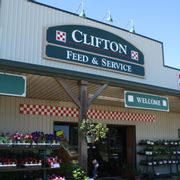Do's and Don'ts for Feeding Chickens

Keeping chickens has become popular among backyard farmers. In fact, even when chickens are raised primarily for their eggs, many families grow attached to their chickens and treat them like pets. Regardless of whether you have just a few birds or a full flock, though, feeding them well is key to preserving their health and ensuring they produce eggs. As you shop for livestock feed and care for your chickens every day, keep these tips in mind.
Do:
Provide livestock feed.
Even if your chickens are mostly free-range and spend their days foraging for bugs, worms, and other natural food, supplementing their diet with age-appropriate livestock feed will keep them healthy.
Young chicks need starter feed with extra protein, for example, to support healthy growth, while egg-laying birds need feed fortified with calcium. If your birds are not vaccinated for coccidiosis, choose medicated livestock feed to protect them from the disease.
Clean the feeders.
Dirty chicken feeders, as well as excess food left on the ground, can cause a host of problems. Not only does uneaten food attract pests, including rodents, but dirty feeders can also spread illness among your flock.
Avoid overfeeding your birds and try to minimize spills to keep feed off the ground. Clean the feeders regularly to eliminate bacteria and other contaminants that will make chickens sick.
Don't:
Give them unhealthy foods.

Although your chickens will eat most fruits and vegetables, as well as bread, rice, pasta, yogurt, and fish or shellfish, in addition to livestock feed, there are some foods to avoid. Never give chickens food with high sugar or salt content or anything moldy.
Other foods that can make them sick include avocados, rhubarb, garlic, citrus, mushrooms, raw or dry beans, and green potatoes. Weeds and grass clippings are usually okay, as long as they aren't too long, which can affect their ability to lay eggs.
Create food scarcity.
Chickens have a natural "pecking order" that determines who gets to eat first. If there isn't enough room at the feeder for everyone, or if there isn't enough food available, the chickens will squabble and fight, which can lead to injuries.
Use a larger trough if necessary, or multiple smaller troughs to ensure all the birds can access food when they want it. Be careful not to overfeed, though; overweight chickens can become seriously ill and develop fatty liver syndrome.
For help selecting the perfect livestock feed for your chickens, get help from the experts at Clifton Feed and Service Center. In addition to their selection of feed, this trusted center also offers all the supplies and products you need for your farm or ranch products, including water and food troughs, animal pest control products, and gardening supplies. To learn more about their products, visit their website or speak to a team member at (254) 675-3416.
About the Business
Have a question? Ask the experts!
Send your question

